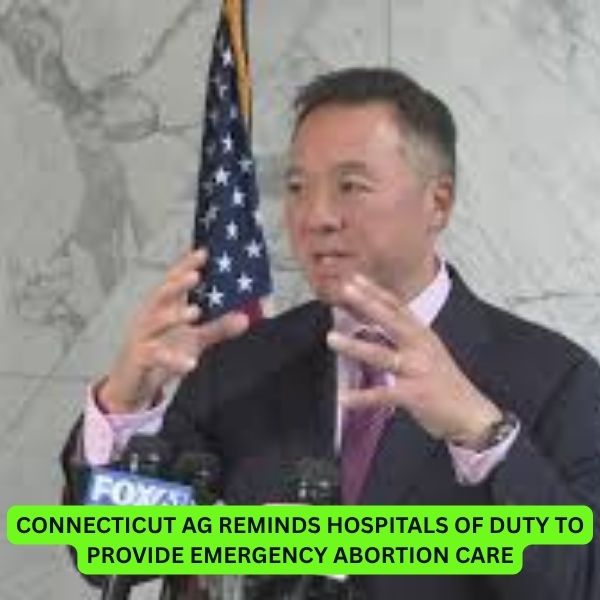Connecticut Attorney General William Tong has joined a coalition of 22 attorneys general in reminding hospitals of their legal obligation to provide emergency abortion care under federal law.
On Thursday, Tong announced that the group had sent a letter to the American Hospital Association, emphasizing that hospitals must comply with the Emergency Medical Treatment and Active Labor Act (EMTALA). This 1986 federal law requires Medicare-participating hospitals to deliver stabilizing care, including abortion when medically necessary, to pregnant patients facing emergencies.
The letter comes in response to the Trump Administration’s recent repeal of 2022 guidance that reinforced hospitals’ responsibility under EMTALA following the Supreme Court’s reversal of Roe v. Wade. According to the attorneys general, removing that guidance does not change the legal obligations hospitals still have under the law.
“When patients arrive at hospitals with life-threatening conditions, the law says emergency departments must provide stabilizing care, including abortion care, if necessary,” said Tong. “There’s no time or room to consult meddling politicians.”
Tong criticized former President Trump, saying he has no medical expertise and shows little concern for the health and safety of women or respect for medical professionals.
The letter was released on the third anniversary of Roe v. Wade being overturned and serves as a warning that federal law still requires hospitals to provide emergency abortion services. Emergency conditions that may require such treatment include ectopic pregnancy, placental abruption, preeclampsia, and severe hemorrhaging, among others.
In the last legislative session, Connecticut strengthened its laws by making it clear that emergency reproductive healthcare—including abortion—is part of required stabilizing care when a pregnant patient’s life or health is at serious risk. This includes miscarriage management and care for ectopic pregnancies.
The letter also highlights the severe consequences of denying emergency abortion care, which can include increased risk of death, permanent injuries, or loss of fertility.
Tong joined attorneys general from 21 other states and the District of Columbia, including New Jersey, California, New York, Arizona, Massachusetts, Michigan, and Washington, in reaffirming their commitment to protecting patients and ensuring hospitals uphold federal law.














Leave a Reply